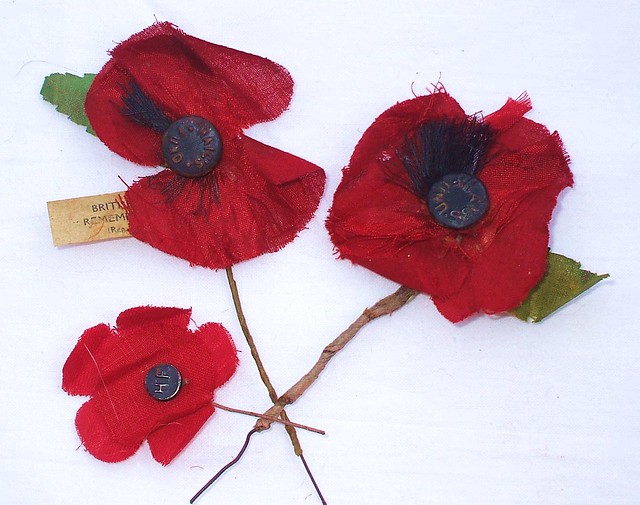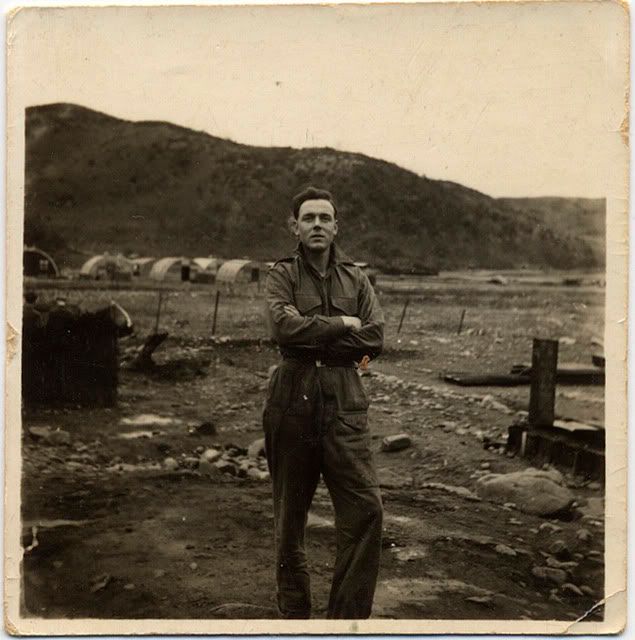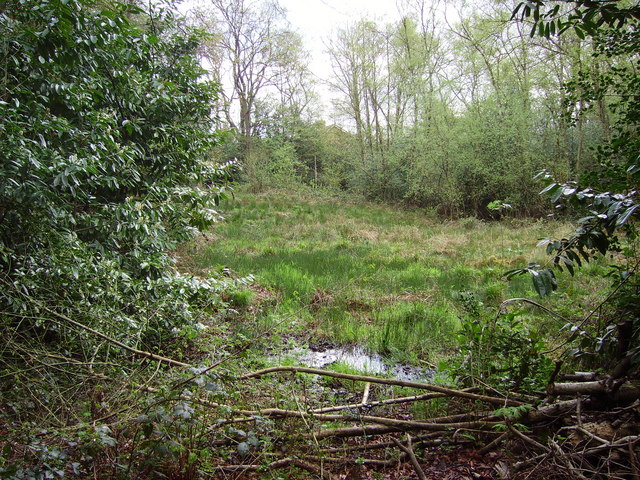Antique silk poppies, found via The Vintage Cottage HERE
Those who read regularly will know how growing up in Aldershot, Home of the British Army, has had a lasting effect on me, and encouraged my interest in military history. Today is such an important time for thought and reflection. It's the 93rd year of Remembrance day, and I hope that many will pause and think at 11 o'clock.
The First Two Minute Silence in London (11 November 1919) was reported in the Manchester Guardian on 12 November 1919:
"The first stroke of eleven produced a magical effect. The tram cars glided into stillness, motors ceased to cough and fume, and stopped dead, and the mighty-limbed dray horses hunched back upon their loads and stopped also, seeming to do it of their own volition. Someone took off his hat, and with a nervous hesitancy the rest of the men bowed their heads also. Here and there an old soldier could be detected slipping unconsciously into the posture of 'attention'. An elderly woman, not far away, wiped her eyes, and the man beside her looked white and stern. Everyone stood very still ... The hush deepened. It had spread over the whole city and become so pronounced as to impress one with a sense of audibility. It was a silence which was almost pain ... And the spirit of memory brooded over it all"If only the modern world showed the same decency.
Those who choose to wear the poppy carry a powerful symbol, the red flower that sprung from the bodies of ALL those who fell in those fields, not just British soldiers. There has been too many examples of negative journalism directed at wearing poppies this week. I find it utterly disgraceful that people could be so cruel, and mostly, it just shows how ridiculous people can be. I would probably care about it more if i thought they knew anything about history themselves.
Those men fought for us. Never mind if it was right or wrong, they went to those trenches no matter what they believed. How could we ever question remembering their sacrifice? For my age group particularly, it doesn't seem the done thing to be proudly wearing the poppy (i'm probably supposed to be off protesting somewhere and causing aggravation) but sorry, you will never change my mind on this one. We've lost our last remaining WW1 soldiers now, and I can't help worrying that we could ever loose our traditions too.
I think Britain should also be proud to have such a potent symbol of remembrance in The Tomb of the Unknown Warrior at Westminster Abbey which was inspired by an inscription on an anonymous grave in Armentieres, France, on a rough cross upon which was pencilled the words "An Unknown British Soldier". After seeing this grave in 1916, The Reverend David Railton wrote to the Dean of Westminster suggesting having a nationally recognised grave for an unknown soldier. As it was 1920, memories of the War was still raw, and Britain had a guilty concious about the thousands of bodies which lay unidentified in those foreign fields,
"Those parents and wives who had lost men to war didn't have anything tangible to grieve at, so the unknown warrior represented their loss" says Terry Charman, a historian at the Imperial War Museum.
"The point was that it literally could have been anybody. It could have been an earl or a duke's son, or a labourer from South Africa. The idea really caught the public mood, as it was a very democratic thing that it could have been someone from any rank."
The next day the dead soldier began the journey to his final resting place. The coffin was taken to Boulogne and placed inside another coffin, made of oak from Hampton Court and sent over from England. Its plate bore the inscription: "A British Warrior who fell in the Great War 1914-1918 for King and Country". This second coffin had a 16th Century sword, taken from King George V's private collection, fixed on top. A two minutes silence marked it's placement in Westminster Abbey.
"To have its own unknown warrior, for a country that sent troops to WWI, is part of its own national identity” Terry Charman
What's more, the symbolism of the act has been mirrored by many other countries around the world. Iraq, the United States, Germany and Poland are just some of those which have created their own memorials.
I hope you will take a moment today to consider how different the world would be now if those men hadn't gone. I know I always will. After visiting the battlegrounds myself and standing on that very same soil, I feel like I owe it to each and every one of them. No matter WHAT side of the line they fought on, we should remember them.
"In Flanders fields the poppies blow
Between the crosses, row on row,
That mark our place; and in the sky
The larks, still bravely singing, fly
Scarce heard amid the guns below.
We are the Dead. Short days ago
We lived, felt dawn, saw sunset glow,
Loved, and were loved, and now we lie
In Flanders fields.
Take up our quarrel with the foe:
To you from failing hands we throw
The torch; be yours to hold it high.
If ye break faith with us who die
We shall not sleep, though poppies grow
In Flanders fields."
John McCrae, May 1915
Thanks for reading.
Katie












